Beyond the Hive: Meet the Unexpected Cast of Characters That Keep Our World Blooming
Think bees are the only pollinators? Think again! Get ready to be amazed by the unsung heroes of the plant world – from bats and beetles to some surprising critters you'd never expect.
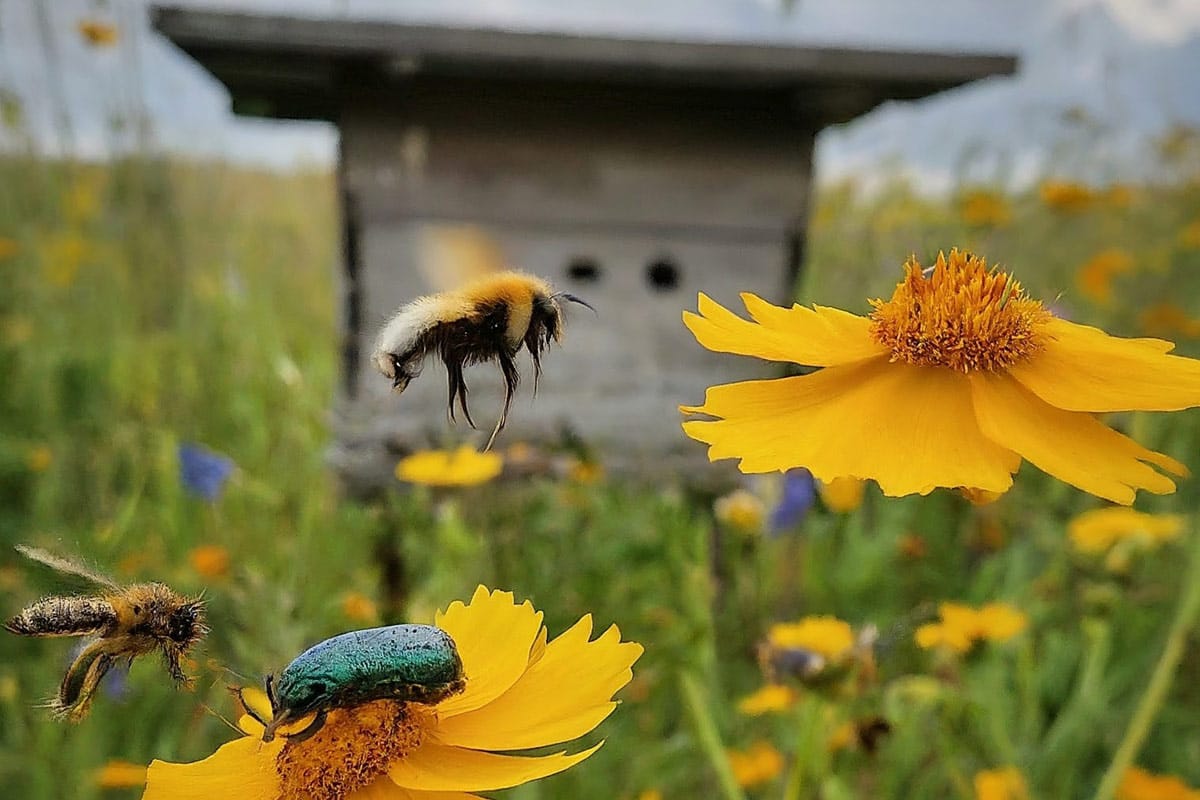
Alright, let's have a little heart-to-heart about those fuzzy, buzzy bees. We all know they're important, right? I mean, we've all heard the whole "bee's knees" thing... But seriously, these guys (and gals!) are responsible for pollinating a huge chunk of the food we eat, not to mention keeping ecosystems thriving. But here's where it gets interesting: bees are just the tip of the iceberg when it comes to pollinators.
Turns out, there's a whole crew of creatures out there doing the work of pollination – and some of them might surprise you. We're talking bats swooping through the night, beetles decked out in pollen, and even flies getting in on the action (yes, those pesky things have a redeeming quality!).
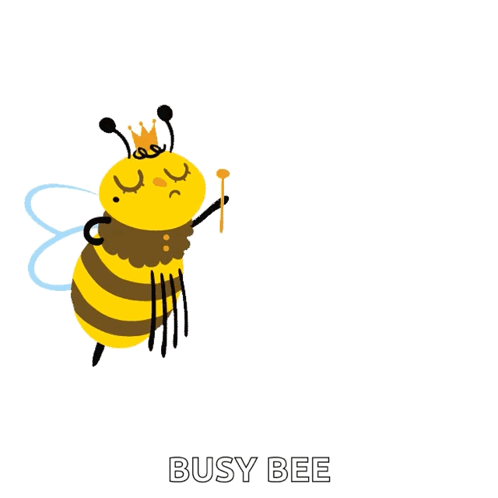
So, let's ditch the bee-centric view and dive into the wild world of pollination. Get ready to meet some unsung heroes (and a few villains-turned-good-guys) you never knew were so important to the world's gardens and wild spaces.
Bats: The Night Shift Heroes
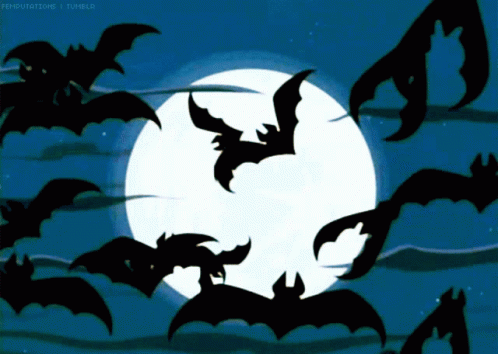
Who knew that the creatures of the night could be so vital to the things we eat during the day? Yep, bats are superstar pollinators, especially in warmer climates. They've got a particular taste for the sweet nectar of night-blooming flowers, like those found on agave plants (yes, the stuff that tequila is made from!).
Think about it: you're sipping a margarita on a warm summer night, and you have a bat to thank for those agave blooms.
But bats aren't just party animals – they also pollinate mangoes, bananas, and even the giant saguaro cactus, which can reach up to 50 feet tall! So, next time you see a bat flitting through the twilight, give them a nod of appreciation for their hard work. They're not just creepy; they're crucial to our ecosystems and taste buds.
Beetles: The OG Pollinators
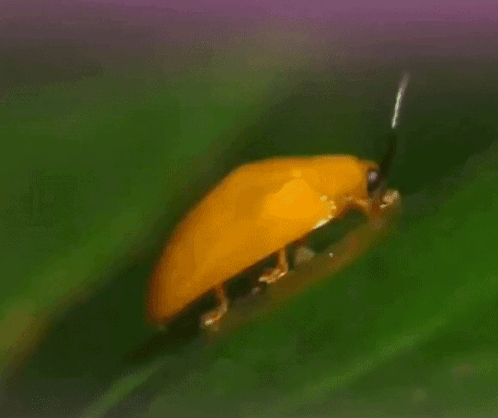
Move over, bees! Beetles have been in the pollination game for over 150 million years, making them the original flower power crew. While some beetles might munch on leaves and stems, there are plenty of species that are all about that nectar life.
These guys don't discriminate. They pollinate everything from delicate magnolias to sturdy vegetables like broccoli and onions. And get this – some beetles are so enthusiastic about their work that they get completely covered in pollen, looking like tiny, fluffy astronauts exploring the floral cosmos.
So, next time you're strolling through a garden, take a moment to appreciate those shiny, armored beetles you might spot on a flower. They're not just bugs – they're ancient pollinators keeping the world blooming.
Flies: Not Just Annoying Buzzers (Promise!)
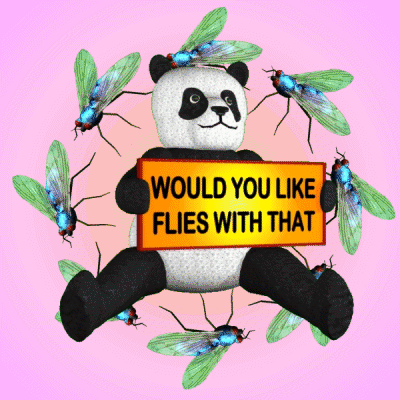
Okay, I get it. Flies get a bad rap. We associate them with buzzing around our food and, well, less glamorous places. But hold your judgment for a moment. There's a whole crew of flies that are actually crucial pollinators.
They might not be as charismatic as butterflies, but these flies do some seriously important work. They pollinate flowers in all sorts of environments, from icy mountaintops to sweltering deserts. And guess what? They're the main pollinators of cocoa trees. Yep, those same flies you swat away on a summer day are indirectly responsible for your chocolate fix.
Maybe flies aren't the most glamorous members of the pollinator crew, but they deserve a round of applause for their contributions to our culinary delights.
Unexpected Pollinators: Lizards? Lemurs? Wait, What?!
The world of pollination is full of surprises. While bats, beetles, and flies might be the unsung heroes, there are even more unexpected characters getting in on the action. Get this: some species of lizards, lemurs, and even rodents help spread pollen!
Yep, those cute little sugar gliders you see in adorable online videos? They're not just jumping around for fun – they're spreading pollen as they travel between flowers. Certain moths, like the hawkmoth, are like the night shift version of hummingbirds, their long tongues reaching deep into blossoms to collect nectar.
Even some wasps, those insects we tend to avoid, are important pollinators for certain flowers, like those in the fig family.
So, next time you're out in nature, keep your eyes peeled. You never know which creature might be playing a crucial role in the complex dance of pollination.
Why Should We Care About All These Creatures?
Okay, so we've met a few of the unsung heroes of pollination, but why should we really care? Well, it's not just about fluffy bats or beetles covered in pollen (though those are pretty adorable).
First and foremost, our food depends on it. Think about the colorful fruits and vegetables you see at the farmer's market or grocery store – most of those wouldn't exist without pollinators. Berries, melons, nuts, coffee, chocolate...the list goes on and on. So, yeah, if you enjoy eating, you should be cheering for these guys.
But it goes deeper than our taste buds. These little guys (and gals!) are essential to the whole web of life. They help wild plants thrive, which in turn provides food and shelter for all sorts of animals. If pollinators disappear, it's like pulling a thread from a sweater – the whole ecosystem starts to unravel.
Plus, let's be real, nature is just plain amazing. These creatures add a layer of magic to our world. Think of a hummingbird hovering like a tiny helicopter, sipping nectar from a flower. Or a moth, painted with intricate patterns, fluttering around your porch light. Pollinators aren't just workers; they're a reminder of the beauty and complexity of the natural world.
A Touch of Magic: Finding Wonder in the Everyday
In my upcoming novel, "The Enlightenment," you'll journey to the fantastical world of Azar, where magical creatures play a crucial role in maintaining the balance of nature. Just like in our own world, every creature, no matter how small or seemingly insignificant, has a purpose.
From the shimmering scales of mermaids to the fiery breath of dragons, the inhabitants of Azar remind us that even the most fantastical creatures are connected to the natural world. And in our own reality, those connections are just as vital – from the tiniest bee to the majestic bat.
Taking Action: What YOU Can Do to Help
The good news is, you don't need to be a wizard or a superhero to support our pollinator pals. Even small actions can make a big difference:
- Plant a Pollinator-Friendly Garden: Choose a variety of native plants that bloom at different times of the year. Ask your local garden center for recommendations, or check out resources like the Pollinator Partnership website for plant lists specific to your region.
- Provide Water Sources: Even a shallow dish filled with pebbles and water can be a lifesaver for thirsty pollinators. Change the water regularly to prevent mosquitoes.
- Skip the Pesticides: Those chemicals might kill pests, but they also harm beneficial insects like pollinators. Opt for natural pest control methods instead.
- Leave Some Wild Areas: Let a patch of your yard go wild. Those "weeds" might be providing important food and shelter for pollinators.
- Spread the Word: Share your knowledge about pollinators with friends, family, and even on social media. The more people know, the more we can protect these vital creatures!
So, let's raise a toast to the unsung heroes of the plant world! Whether it's a buzzing bee, a fluttering butterfly, or a stealthy bat, we all owe them a debt of gratitude for the beauty and bounty they bring to our lives.
And as you nurture your own garden, remember, it's not just about the pretty flowers; it's about fostering a thriving ecosystem where even the smallest creatures play a big role.
